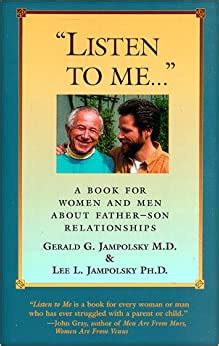A Quote by R. D. Laing
Here we have the paradox, the potentially tragic paradox, that our relatedness to others is an essential aspect of our being, as is our separateness, but any particular person is not a necessary part of our being.
Quote Topics
Related Quotes
Our soul, our true self, is the most mysterious, essential, and magical dimension of our being. In fact, it is not a separate reality, as traditional Western thought views it, but the cohesive force that unites our body, heart, and mind. It is not a ghost trapped somehow in the physical machinery of our body but the very essence of our being.
I don't know if anyone has noticed but I only ever write about one thing: being alone. The fear of being alone, the desire to not be alone, the attempts we make to find our person, to keep our person, to convince our person to not leave us alone, the joy of being with our person and thus no longer alone, the devastation of being left alone. The need to hear the words: You are not alone.
The paradox is that exactly the reverse is true. Everything that’s really worthwhile in life came to us free; our minds, our souls, our bodies, our hopes, our dreams, our ambitions, our intelligence, our love of family and children and friends and country. All these priceless possessions are free.
But the things that cost us money are actually very cheap and can be replaced at any time. A good man can be completely wiped out and make another fortune. He can do that several times. Even if our home burns down, we can rebuild it. But the things we got for nothing, we can never replace.
Although a system may cease to exist in the legal sense or as a structure of power, its values (or anti-values), its philosophy, its teachings remain in us. They rule our thinking, our conduct, our attitude to others. The situation is a demonic paradox: we have toppled the system but we still carry its genes.
The quality of everything we do: our physical actions, our verbal actions, and even our mental actions, depends on our motivation. That's why it's important for us to examine our motivation in our day to day life. If we cultivate respect for others and our motivation is sincere, if we develop a genuine concern for others’ well-being, then all our actions will be positive.
The world is part of our own self and we are a part of its suffering wholeness. Until we go to the root of our image of separateness, there can be no healing ... Only when our feet learn once again how to walk in a sacred manner, and our hearts hear the real music of creation, can we bring the world back into balance.





































